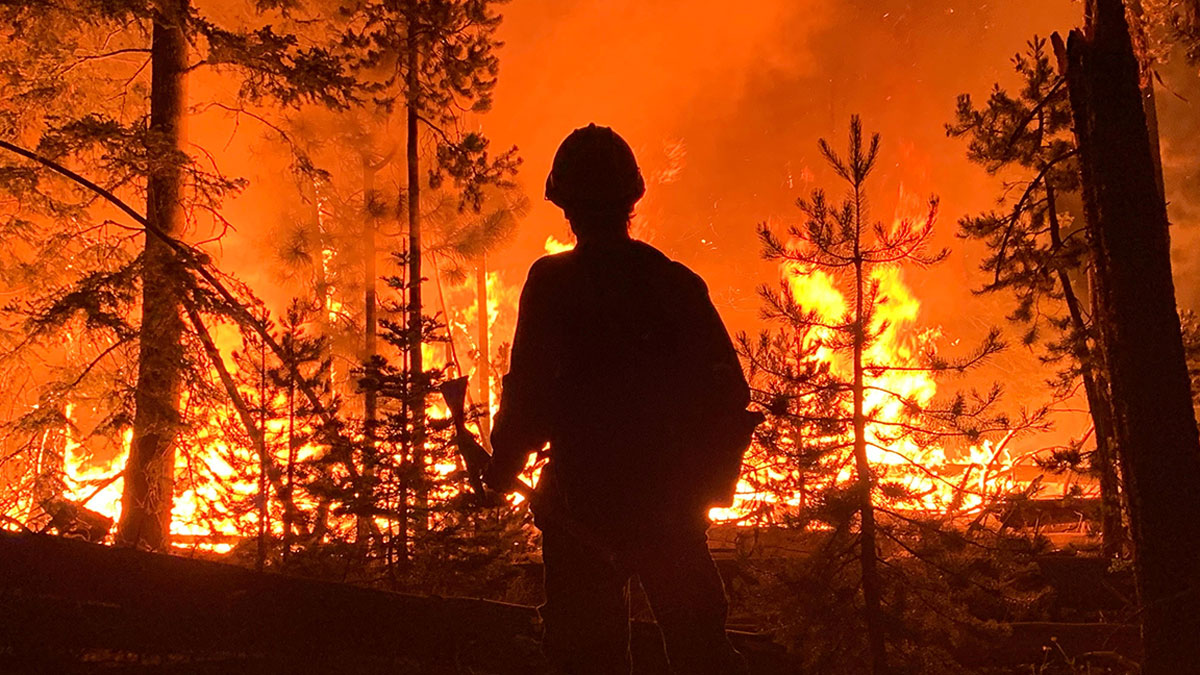A researcher at a one-of-of-kind lab focused on examining fire behavior has a simple, two-pronged message he wants everyone to know: 1) fire can be our friend, and 2) we don’t have the power to choose whether some things burn.
“Every year, we prove we do not have the power to choose not to have it; the only power we have is when to have it and what kind to have. And that’s it,” Mark Finney, researcher at the Missoula Fire Sciences Laboratory, told Newsy. “And when you realize that those are your only real choices, why wouldn’t you choose to have beneficial kinds of fires that sustain rather than destroy the forest?”
When Finney references “beneficial kinds of fires,” he means intentionally-set controlled or prescribed burns. Foresters strategically utilize them when weather conditions are favorable to remove downed and decaying timber, small trees and other shrubs that serve as ladder fuels for larger, more destructive catastrophic wildfires that burn hot, destroy the root structure of native grasses and vegetation, and alter or even remove nutrition from the soil.
The Rocky Mountain Elk Foundation is a long-time advocate of prescribed burns, maintaining that such treatment efforts enhance habitat for elk, deer and a myriad of other wildlife species. In doing so, RMEF sees eye-to-eye with forest managers and scientists about the importance of active forest management techniques like prescribed burns and thinning, major reasons why it recently committed $1 million to wildfire restoration.
So it comes down to either implement preventative yet beneficial action to improve wildlife forage and overall forest health or wait and let white-hot wildfire flames do what they do.
“All that stuff is sitting there waiting to be burned, and it has to be removed, and it will be one way or another,” Finney told Newsy.
(Photo credit: Inciweb)
